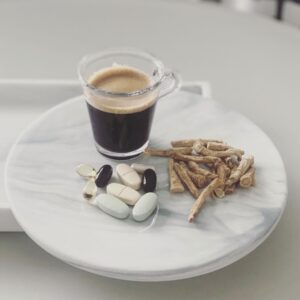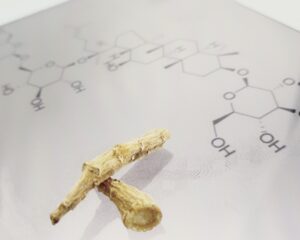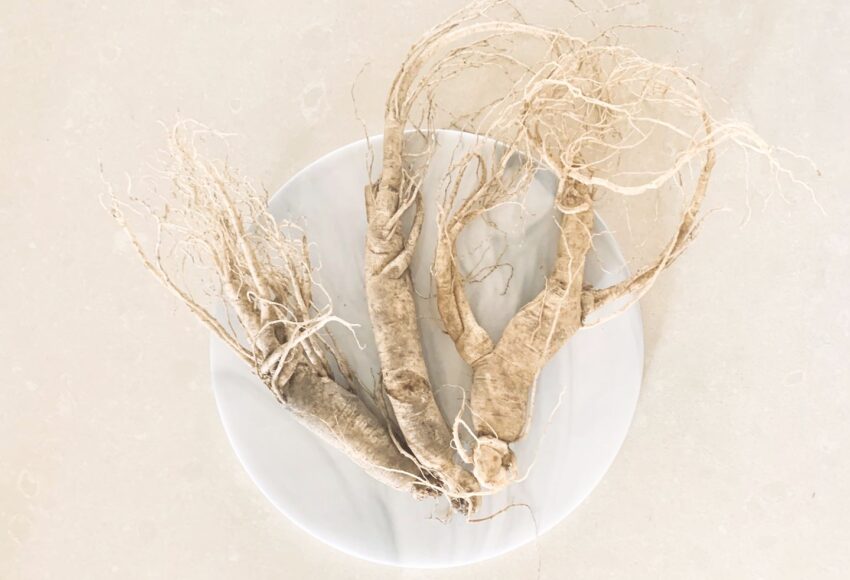GINSENG! What is this one ingredient that comes up so often in our everyday supplements and skincare? Just the other day, when I was down with the flu, my grandma insisted on putting ginseng in my chicken soup. According to her, there are no other remedies that work wonders like adding ginseng to your soup. Asian culture has long cherished ginseng for its healing properties. In the last few years, this “ginseng craze” has been popping up in new skincare launches. Being the curious beauty junkies we are, what better time than now to get to the rhoot of this, well, root.
What is Ginseng?
Dating as far back as 196 AD, the meaning of ginseng stems from the Chinese word 人参 rénshēn (人 rén means person, while 参 shēn means plant root). Ancient Chinese people were first attracted to the odd looking root due to its shape.
A piece of ginseng resembles a little human. It takes close to six years to reach its peak potency before it can be harvested. Fast forward to today, we see beauty brands (notably K-Beauty skin experts, Sulwhasoo) tapping into ginseng’s skin benefit. What exactly does it do for the skin?
Benefits of Ginseng in Skincare
Ginseng has long been compared to everyone’s cult morning drink – COFFEE! Skin experts have even nicknamed it “Eastern coffee” because it gives the body, including skin, an energy boost. Thanks to its rich source of vitamins – which include B1, B2, B5, B12 – the energizing effect can combat dark circles, puffiness and dullness.

Over 200 compounds have been isolated from the ginseng species. Out of these compounds, ginsenosides are the major active components of ginseng. It contains powerful antioxidant and anti-inflammatory properties. In other words, if you suffer from tired, dull, mature and acne-prone skin, you’ve found your multi-tasking skin-care savior! (see footnotes)
As we age, the biggest fear is our skin becoming thin, dry and losing its elasticity …=(…when this happens, wrinkles appear and our skin starts to sag. One unique component found in ginsenosides, Compound K, will directly combat this problem. It essentially inhibits the activity of enzyme MMP-1, which is responsible for breaking down the skin’s collagen fiber. Therefore, Compound K prevents the loss of hyaluronic acid in our skin.

So, let’s recap: Ginseng reduces puffiness, brightens undereye circles, prevents wrinkles, benefits acne, and boosts blood flow for a natural glow. If you are a fan of DIY like us, check out this tutorial on how to whip up your own ginseng mask!
Footnotes:


As a Newbie, I am continuously exploring online for articles that can be of assistance to me. Thank you